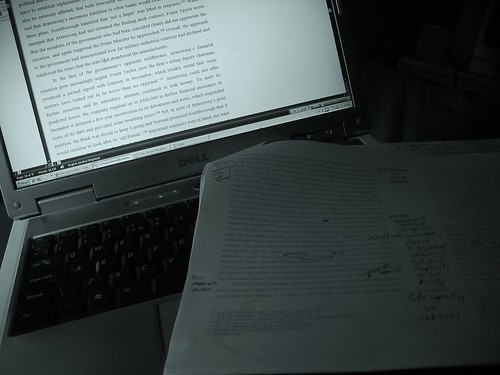In mid-August,, I posted a note asking for your vote on a panel I proposed for SXSWedu consisting of Tanya Joosten, Amy Collier, Audrey Watters, and myself. The topic was: Startups Should Talk with Researchers and Educators,
I’m uber excited to report that our proposal has been accepted. We will be headed to Austin in March to discuss how researchers and educators can contribute to the design, development, refinement, and ultimately effectiveness of learning technologies and educational technology.
Tanya described why she is interested in this topic on her blog. I thought I would do the same, especially as Tanya, Amy, and I were at Educause this week discussing issues that educational institutions need to consider when piloting for technology/innovations.
A lot of you may not know this, but I have a degree in computer science, and way back when, in my undergraduate thesis I developed software enabling real-time interactions between students and instructor that emulated classroom processes by allowing students to “raise their hand” to ask questions, make comments, etc. This was nothing spectacular, unique, or groundbreaking. Yet, it was my first attempt at developing educational technology to solve a (perceived) problem. Since then, I have concurrently done design/development work and research, and I see myself as a researcher and a designer. Some of the projects I have worked on are AvenueASL (a language learning and e-assessment platform), Project Engage (a dual credit course and online learning environment introducing students to the Big Ideas relating to Computer Science), Geothentic (an online environment immersing students in Geography through situated, real-world problem-solving), and AL through Water and MOSS (an online learning environment supporting science learning via outdoor exploration). I don’t only write about learning technologies. I also build them.
How does one reconcile D&D work and research? My perspective is that it’s not enough to study what happens with educational technology. Studying, analyzing, critiquing, and questioning educational technology is very important. It’s imperative. But, we need to take the additional step to use the research to (a) design and develop educational applications, and (b) inform others on what the research says so that they can develop effective technology-based solutions based on what we know about teaching and learning. Hence the need for this panel.
I was also motivated to put together this panel after participating in SXSWedu 2013. One of the sessions I attended last year focused on business models for educational technology. One of the panelists noted that their commitment to their investors is profit, not learning outcomes. I’m not naive. Entrepreneurship is important and we should support and reward it in various ways. However, putting profits before learning outcomes is corrosive and dangerous. The biggest losers in such a setup will be learners, the idea of the university, and the idea of education. Our panel at SXSWedu is an attempt to add some sense to the conversation, to ‘add the “edu” to “sxsxedu” ‘ (I think that’s a Laura Pasquini quote, but i might be mistaken). It is also an attempt to explain to startups and vendors how they can have their cake and eat it too, how they can make meaningful, and much needed, change in education without necessarily sacrificing other goals that they have.
Whether you are an educator, a startup company, a researcher, a reporter, or an administrator, please join us – we’d love to have you!
For your information, here is our panel’s description: Education is facing numerous challenges. Educational technology startups promise solutions. However, entrepreneurs seem to disregard the knowledge that educators and researchers have amassed that can help startups address these challenges, or, at least, help them avoid repeating the mistakes of the past. At the same time, we were astounded by the lack of educators and researchers that were sharing their knowledge at last year’s SXSWedu conference. The event felt more like a vendor gathering than what the SXSWedu website describes as “meaningful conversation and collaboration around promising practices and tools for improved learning.” If we want meaningful and transformational change in how we do education, it is imperative for entrepreneurs and educators/researchers to converse. In this interactive panel, we will discuss how educators/researchers can help startups improve their products and answer questions pertaining to education research, how people learn, and classroom practice.





